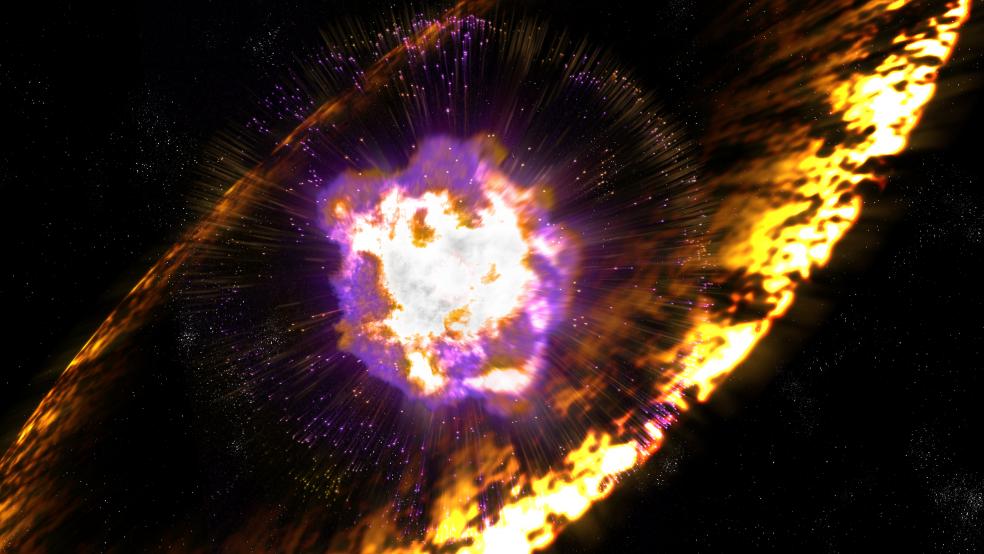Forget ISIS, plane crashes, your student loan, Hillary’s emails, interest rates, Vladimir Putin, the Iran Deal, Ted Cruz, and anything else that keeps you up at night.
Here’s one that could put us all to sleep—permanently. Physicists have figured out that our universe is on an “imminent” track to collapse. As PhysOrg put it, the universe will soon stop expanding and collapse in on itself, obliterating all matter as we know it. To physicists, imminent is like dog years writ large—meaning tens of billions of years, give or take.
Nemanja Kaloper at the University of California, Davis and Antonio Padilla at the University of Nottingham have “proposed a mechanism” for cosmological collapse. Yup…thanks to these two fat brains, we can now safely invest in the manufacturer of Xanax, confident that the sales of the anxiety pill will likely skyrocket.
"The fact that we are seeing dark energy now could be taken as an indication of impending doom, and we are trying to look at the data to put some figures on the end date," Padilla told Phys.org. "Early indications suggest the collapse will kick in in a few tens of billions of years, but we have yet to properly verify this."
The story in PhysOrg goes on to describe how the 13.8 billion year old universe evolves. It’s complicated. Whenever you have accelerated expansion and dark matter, you might as well throw in the towel—at least that’s what I took away from the report.
"There is much to do," Padilla told PhysOrg. “Over the longer term, we would like to understand how our theory could emerge from a more fundamental theory, such as string theory. It is also important to ask what happens when we consider vacuum energy corrections from quantum gravity."
Sounds perfectly logical, right? Then came Padilla’s Xanax conclusion:
"The present epoch of acceleration may be evidence of impending doom. . . A detailed analysis to better quantify these predictions is certainly warranted."
Top Reads from The Physcal Times:


